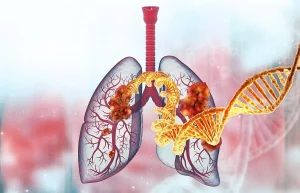In what amounts to a double whammy for those living with HIV, a new American Heart Association scientific statement says these patients face higher heart risks but also major barriers to health care.
Three-quarters of people in the United States with HIV are older than 45 and have significant health problems at earlier ages than people without HIV, according to the statement published June 3 in the journal Circulation.
“Aging with HIV differs greatly from the aging issues facing the general population,” Jules Levin wrote in an accompanying patient perspective. Levin has been living with HIV for 35 years and is the founder and executive director of the National AIDS Treatment Advocacy Project.
“On average, people living with HIV who are over 60 years old have three to seven medical conditions, including heart attacks, strokes, heart failure, kidney disease, frailty and bone diseases, and many take 12 to 15 medications daily,” Levin explained in a heart association news release.
“As they age, people living with HIV are often alone and disabled, emotionally homebound due to depression, and are socially isolated. In addition, they often suffer from lack of mobility and an impaired ability to perform normal daily functions. We urgently need better awareness and more patient-focused research and care efforts for this vulnerable population,” Levin said.
Antiretroviral therapy has changed HIV infection from a fatal disease to a chronic, manageable condition. However, people with HIV have a higher risk of heart attack, stroke, heart failure and sudden cardiac death than those without HIV.
This increased risk is due to common factors such as diet, lifestyle and tobacco use, and HIV-specific risk factors such as chronic immune system activation and inflammation associated with HIV infection.
Tobacco use is common among people with HIV (42% are current smokers), as is heavy alcohol use, drug abuse, mood and anxiety disorders, low levels of physical activity and poor heart-lung fitness — all of which can increase the risk of heart and blood vessel diseases, according to the statement.
According to Dr. Matthew Feinstein, chair of the statement writing group, “Considerable gaps exist in our knowledge about HIV-associated diseases of the heart and blood vessels, in part because HIV’s transition from a fatal disease to a chronic condition is relatively recent, so long-term data on heart disease risks are limited.” Feinstein is an assistant professor of medicine and preventive medicine at Northwestern University in Chicago.
The statement also noted that many people with HIV have difficulty accessing quality health care due to factors such as stigma, education level, where they live, lack of health care knowledge, mental impairment, injection drug use, mobility problems, frailty, depression and social isolation.
Age, racial/ethnic and gender disparities also affect care of people with HIV.
A healthy lifestyle that includes not smoking, regular physical activity, little or no alcohol, and a nutritious diet can help reduce the risk of heart troubles in people with HIV, Feinstein said.
Other measures may include cholesterol-lowering statins and medications that reduce the risk of blood clots, but more research is needed to confirm the benefits of such treatments.
More information
The U.S. Centers for Disease Control and Prevention has more on living with HIV.
Source: HealthDay
Copyright © 2025 HealthDay. All rights reserved.

















